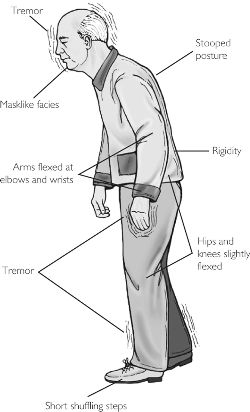The common drugs used to treat narcolepsy, battle drowsiness, and help with weight loss may up risk of Parkinson’s disease, a recent observational study found. According to Steven Van Den Eeden, PHd., research scientist at Kaiser Permanente Division of Research, Oakland, California, men and women who are taking Benzedrine (amphetamine sulfate) or Dexedrine (dextroamphetamine sulfate) have 56% higher risk of developing Parkinson’s disease later in life compared to those who don’t.
Observing individuals who were members of Kaiser Permanente Northern California after 1995 and once participants of 1964 to 1973 Multiphasic Health Checkup Cohort exam, including 66,348 with no Parkinson’s disease at baseline, Dr. Van Den Eeden and colleagues found participants reported taking weight-loss medication at baseline did not have an elevated risk for Parkinson's disease through follow-up (HR 0.95, 95% CI 0.75 to 1.21). However, those who reported often using Benzedrine or Dexedrine did, and got significantly greater risk.
Of these participants, 1,154 were diagnosed of Parkinson’s disease on mean follow-up of 38.8 years. 36 was the mean age at baseline, whereas 70 was the mean age at diagnosis.
On a comment, Anna Hohler, MD, assistant professor of neurology at Boston University, said it's possible that personality characteristic may explain the relationship associating Parkinson's disease with amphetamine use, but may just be indirect rather than a direct association.
It’s odd that amphetamine was then a drug recommended by doctors in white scrubs to treat Parkinson’s, but the study actually suggests it does otherwise, supporting the findings of two other recent studies. On the other hand, the study does not prove any direct link of amphetamine to Parkinson’s disease, calling for further studies to support or refute this. If this proves causation, many individuals who’s professions push them to take amphetamines are at high risk of developing Parkinson’s disease, including those in nursing uniforms.
The study will be presented at the American Academy of Neurology on April, and is not yet supported by peer reviews.

This is a good common sense Blog. Very helpful to one who is just finding the resources about this part. It will certainly help educate me.
ReplyDeleteweightloss medication